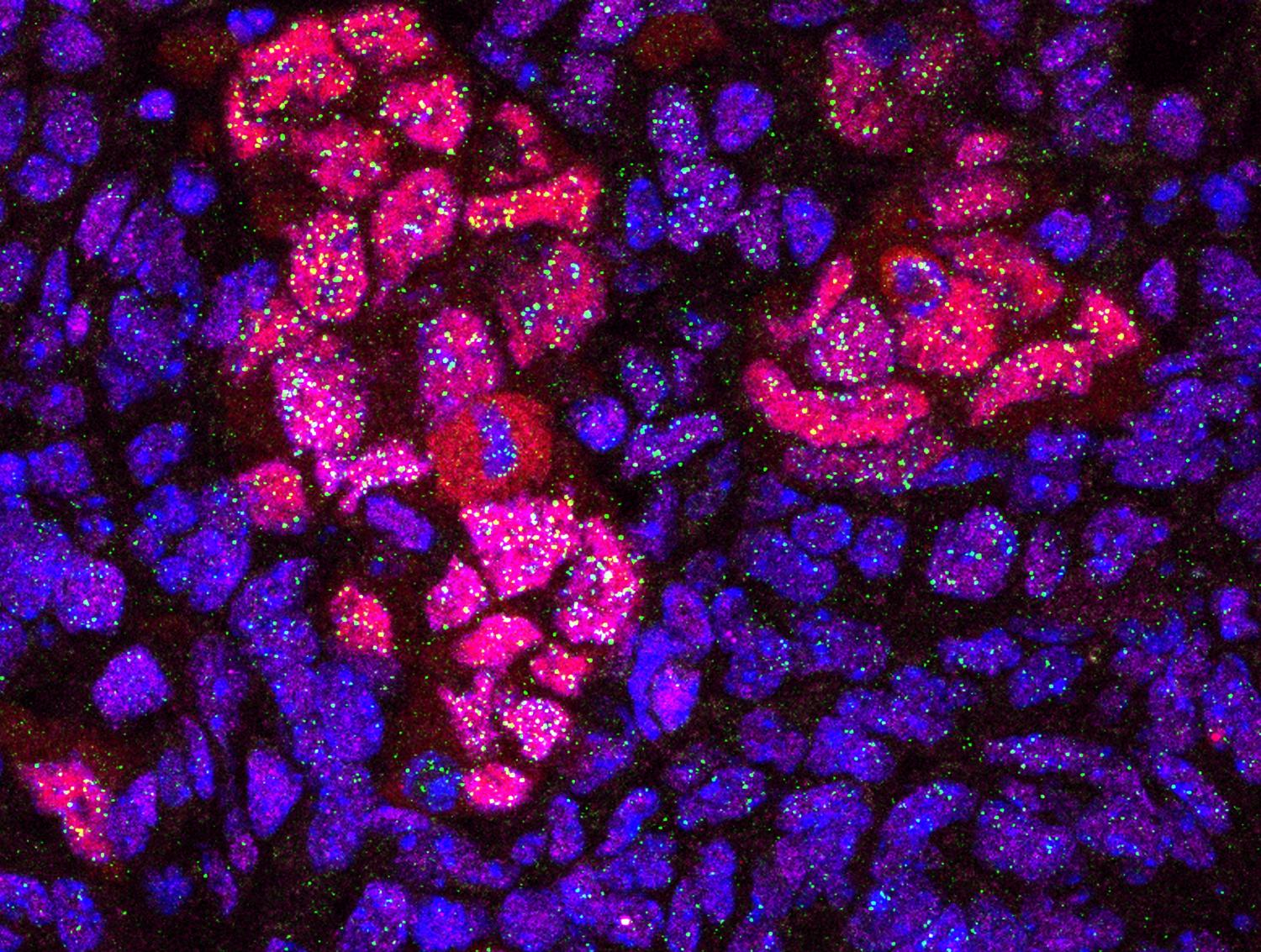During the ‘in vivo’ reprogramming process, cellular telomeres are extended due to an increase in endogenous telomerase. This is the main conclusion of a paper published in Stem Cell Reports by a team from the Spanish National Cancer Research Centre (CNIO). Their observations show, for the first time, that the reprogramming of living tissue results in telomerase activation and telomere elongation; thus reversing one of the hallmarks of aging: ‘the presence of short telomeres’.
“We have found that when you induce cell dedifferentiation in an adult organism, the telomeres become longer, which is consistent with cellular rejuvenation”, explains María A. Blasco, head of the CNIO Telomeres and Telomerase Group and leader of this research. This lengthening of the telomeres is an unequivocal sign of cell rejuvenation, which has been quantified for the first time here in a living organism.
Blasco and her colleagues have worked with the so-called “reprogrammable mice” –created by Manuel Serrano, also a CNIO researcher, whose group is also involved in this project. Broadly speaking, the cells of these transgenic animals carry the four Yamanaka factors (OSKM) whose expression is turned on when an antibiotic is administered. In doing so, the cells regress to an embryonic-like state, a condition known as known as pluripotency.
